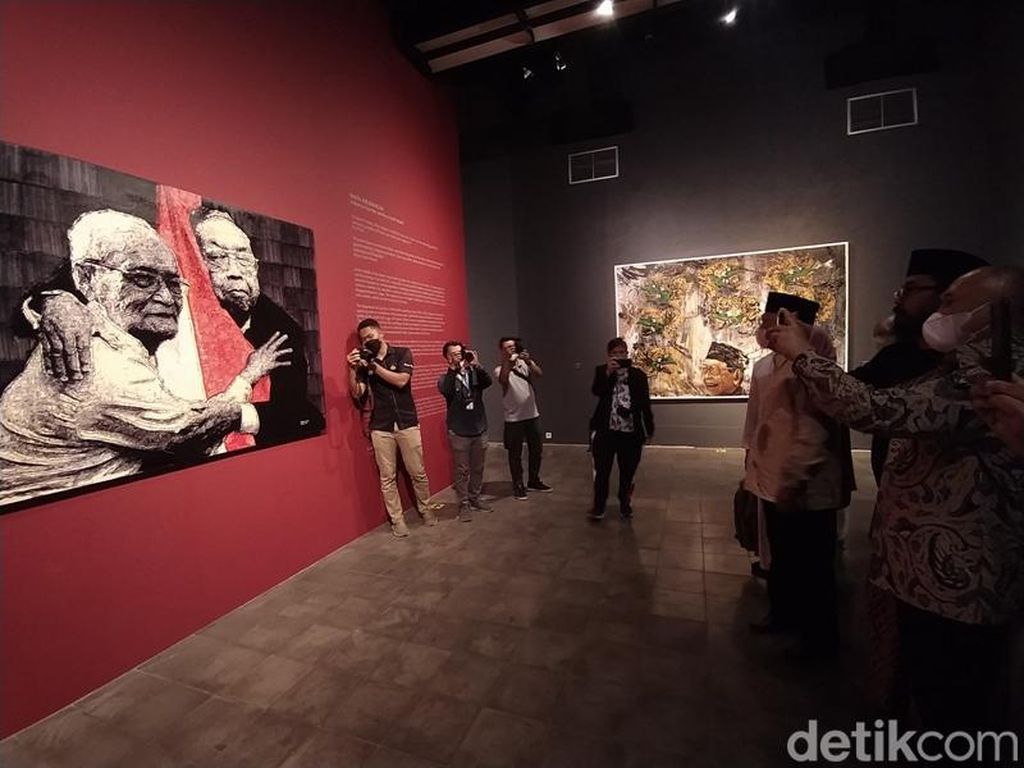I don’t believe I need to elaborate extensively on Buya Syafii’s concerns. There have been numerous instances of conflicts among religious communities in our nation. These cases should remind us of the importance of nurturing brotherhood in differences. Achieving this brotherhood among religious communities demands the portrayal of a friendly face in our religious expressions towards each other. Yes, we differ, but we are fellow citizens, compatriots, and fellow human beings.

Buya Syafii Maarif and the Friendly Face of Islam
The notion of a ‘friendly face’ in Islam—this is how Buya Syafii describes it in one of his works titled ‘Islam, Humanity, and the Indonesian Identity.’ In this book, Buya Syafii invites the Muslim community in Indonesia to present a welcoming expression of Islam, emphasizing a practice of Islam that prioritizes tolerance among people of different faiths.
Ahmad Syafii Maarif, a prominent Muslim intellectual in Indonesia, was known for his contributions. Throughout his life, Buya Syafii taught at UIN Sunan Kalijaga Yogyakarta and held a significant position within Muhammadiyah, serving as its Chairman from 1998 to 2005. He was widely recognized for his various ideas concerning national unity, with a particular focus on fostering harmony among religious communities.
In his work titled ‘Turning Points in My Journey: The Autobiography of Ahmad Syafii Maarif,’ Buya Syafii recounts his intellectual journey. He acknowledges that his Ph.D. studies at the University of Chicago greatly influenced his perspectives on Islam. He refers to this phase as a ‘second birth’ in his intellectual journey.
His time in Chicago significantly shaped Buya Syafii’s stance of tolerance toward people of other faiths. During his stay there, he not only interacted with individuals from different religions but also coexisted harmoniously with atheists. This period in Chicago became pivotal in shaping Buya Syafii’s thoughts on inter- and intra-faith tolerance.
Buya Syafii stated, ‘In my post-Chicago intellectual struggle, Indonesia and Islam merged into one. The Islam practiced by the majority cannot seek victory alone. Fellow citizens, despite differing faiths, must be protected and treated justly and proportionally.’
Therefore, according to Buya Syafii’s perspective, despite being the majority, the expression of Islamic identity should not be based on a sense of majority-driven ego. Instead, a welcoming Islam that embraces wisdom towards non-Muslims is what should be expressed in our religious practices.
His viewpoint on the relationship between Muslims and non-Muslims is encapsulated in one slogan: ‘brothers/sisters in differences and different within brotherhood/sisterhood.’ Buya Syafii mentions, ‘With this formula, my faith doesn’t weaken; it grows stronger. Meanwhile, dignified brotherhood/sisterhood can be established freely with anyone. If I claim that Islam is my best and ultimate choice, the same rights should be fully granted to anyone with different beliefs.’
Therefore, the principle of ‘brothers/sisters in differences and different within brotherhood/sisterhood’ doesn’t mean disregarding the faith we hold. On the contrary, it strengthens our religious awareness amid diversity. We recognize that every Indonesian has the freedom to practice their religion and worship according to their beliefs, as stated in Article 29, Paragraph 2 of the 1945 Constitution.
This principle of brotherhood in diversity demands mutual respect between Muslims and non-Muslims. Buya Syafii emphasizes that ‘minority groups should also understand the sociological landscape of Indonesia to eliminate grassroots tensions by nurturing a culture of mutual understanding.’ This principle not only requires Indonesian Muslims to dismantle their majority-driven ego but also urges non-Muslims to prioritize understanding towards Muslims. It means both Muslims and non-Muslims must advocate for tolerance, contributing to a peaceful coexistence.
Therefore, the expression of a friendly face in religion, as I mentioned earlier, doesn’t pertain solely to Muslims. It applies to all religious communities in Indonesian society—Muslims, Christians, Hindus, Buddhists, Confucians, and believers of other faiths. This is crucial to foster peaceful coexistence amid differences and ensure its preservation.
We must deeply comprehend Indonesia’s diverse societal landscape. We must understand that it’s not just fellow Muslims around us but also non-Muslims. In this diversity, if we fail to uphold the principle of brotherhood in differences, as Buya Syafii expressed in ‘Seeking Authenticity in the Dynamics of Time,’ there’s a concern that religion may no longer function as a source of peace and security. The expression of religion without emphasizing tolerance could potentially become a source of chaos or even conflict.








